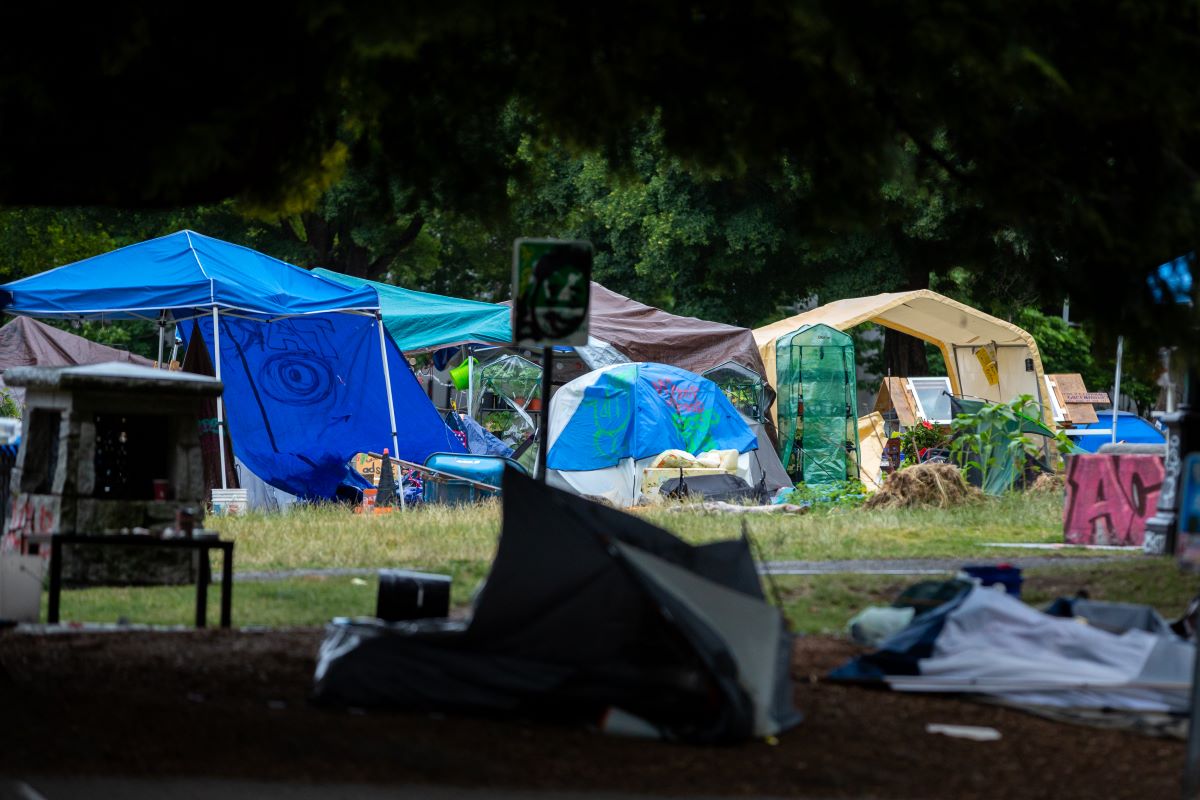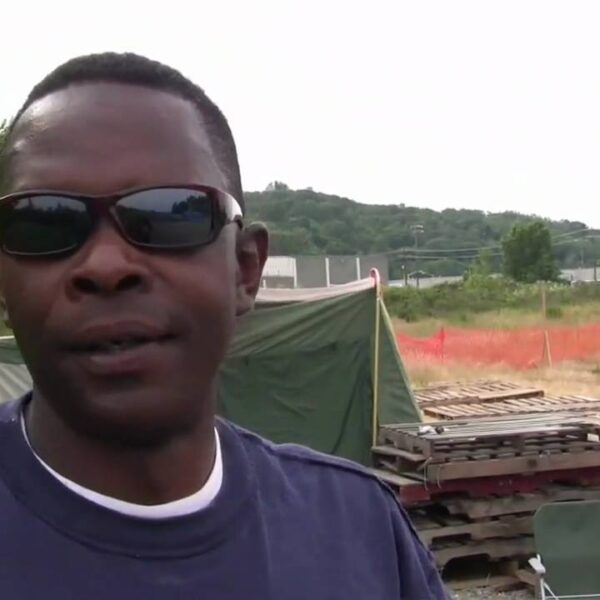Conservatives are calling on Seattle officials to end their relationship with the King County Regional Homelessness Authority, which coordinates local responses to homelessness. They say the organization is unable to meet its responsibilities.
The calls come after the KCRHA unanimously adopted its five-year strategic plan, one that sets ambitious goals for reducing unsheltered homelessness in a part of the country that has seen this subpopulation grow significantly in the past several years.
“As experience has now demonstrated, there are foundational issues that make the KCRHA doomed to fail and unfit to be trusted with the major responsibility of improving the state of the homelessness crisis in our region,” Reagan Dunn, a Republican King County council member, wrote in an op-ed for the Seattle Times.
“As we approach the time when King County government could withdraw from this partnership with Seattle and five other cities under the agreement, elected leaders should be evaluating whether the value of the KCRHA is worth the many hundreds of millions of taxpayer dollars that would be invested over the next decade,” Dunn continued.
KCRHA Struggles with Internal Issues and Accusations
Since starting operations in 2021, the KCRHA has been under fire from both sides of the political aisle as it seeks to reduce the number of people who call Seattle’s streets home. Over the past two years, the unhoused population in Seattle has increased by about 44% from 9,300 in 2021 to more than 13,300 in 2022, according to data from the U.S. Department of Housing and Urban Development.
Outside of the overall unhoused population growth, the KCRHA has also been dealing with internal struggles and accusations that the agency doesn’t pay its nonprofit service partners. Marc Dones, the KCRHA’s first CEO, also resigned in May and cited the need to revisit the agency’s structure to get their work done effectively.
Calls to disband KCHRA started to trickle in shortly after Dones’ departure. Jason Rantz, a conservative radio commentator in Seattle, wrote in an op-ed for 770 KTTH, a talk radio station, that Dones “failed” because he’s an activist that “had an attitude making it difficult to work with.” He also derided Dones for not supporting encampment sweeps despite overwhelming evidence that sweeps are costly and counterproductive.
The calls have gotten louder since KCRHA adopted its five-year strategic plan.
The plan calls for the creation of more than 18,000 shelter units to house the anticipated more than 53,000 unhoused folks that will live in the area by 2027, according to a report. The agency also asked for a budget of about $250 million, with most of that money coming from local sources, and said it would take a bigger role in coordinating the county’s network of service providers.
To Dunn, the request for more money was too much to handle. Dunn wrote that the agency already had a reputation for not managing its money well and that issues must be resolved before its coffers expand.
“Despite this series of asks for more money, the authority has been unable to demonstrate a capability to manage the dollars it already has, with service organizations that depend on its timely distribution of funding complaining of long delays that hinder its ability to do the basic work in the community,” Dunn wrote.
But not everyone agrees that KCHRA has been ineffective.
In August 2022, Washington officials credited KCHRA’s outreach efforts before a couple of encampments along the I-5 corridor were cleared. The nearly six-week outreach process resulted in all 75 people at the encampment receiving shelter, lodging, inpatient treatment, and housing resources.
“While no jurisdiction, authority, or nonprofit can solve it all alone, effective resolution efforts like this demonstrate we can make progress when we align on our mission and values,” said Seattle Mayor Bruce Harrell, a Democrat. “Working together, we can get people off the streets with the support, services, shelter, and housing they need for safety, stability, and recovery.”
How You Can Help
The pandemic proved that we need to rethink addressing homelessness in the U.S. It also showed that aid programs work when agencies and service organizations have sufficient funds and clear guidance on spending.
Contact your representatives and tell them you support bolstering programs that support youths aging out of the foster care system. These programs have proven effective at keeping young people housed, which is the first step to ending homelessness.












